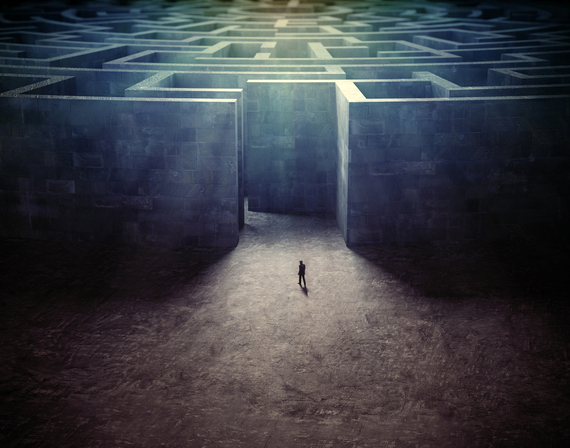By Dr. Angel Morgan via DreamsCloud
As morning arrives, you begin to remember the dreams that you had during the night, recalling the exciting -- perhaps even seemingly random or confusing -- images that filled your head. And you wonder: What did it mean?
While some dreams can appear to be more self-explanatory than others, even those are often filled with symbols and multiple layers of meaning -- but exactly what that meaning is depends on the dreamers.
That's why many experts in the field of dream studies, along with practiced dream workers, resist the concept of "dream interpretation." Although "dream interpretation" is a commonly used term, it can be misleading, as it gives the impression that the dream interpreter is able to provide definitive meaning to the dream. Rather, the true and final meaning of dreams can only be determined by dreamers themselves.
In ancient times, oracles, shamans and mystics were often consulted to understand dreams. Beginning in the 19th century, psychoanalysts and experts in mental health became more aware of the importance of dreams. Today, thanks to social office environments (e.g., the water cooler) and the growth of social media, people are more and more willing to tell others about their dreams -- and there are a number of online "dream dictionaries" that purport to give explicit, concrete meanings to images commonly encountered in dreams.
Although these resources can be useful tools for dreamers who seek to interpret their own dreams and discover how certain dream symbols may be connected to events or emotions in their waking lives, no single or self-described dream interpretation resource can ever accurately be regarded as "definitive." There is never only one way of looking at a dream symbol or theme. Every dream dictionary has an author or set of authors, who bring their own ideas, opinions and thoughts to dreams and dreaming.
Those of us who work with dreams frequently use popular "projective dreamwork" methods that are associated with two enormously respected experts in dream studies: Dr. Montague Ullman and Rev. Jeremy Taylor. Both of these methods utilize the phrase, "If this were my dream..." which aims to prevent others from imposing their subjective interpretations onto the dreamer. Using this statement allows dreamers to accept or reject any insights that are shared by dream workers.
Carl Jung is among the writers who have observed that there are many themes and symbols within dreams that seem to be common around the world, regardless of language or cultural barriers.* For instance, many people dream about water -- to some, water symbolizes emotion, to others it is a "mother symbol," while to someone else dreaming of water could just mean it's time to go surfing. Every interpretation that comes from outside the individual dreamer is just that: an interpretation, not a definitive answer.
When people claim to be "dream experts" or claim to have the final word about what your dreams mean, carefully examine their credentials! Find out what training they have and ask how they know what they claim to know about dreams.
For instance, the most effective and qualified dream professionals will encourage and empower dreamers to discover individualized dream interpretations, both through sharing thoughts and ideas with others, and by providing what's known as a "projective" dream reflection, beginning with that familiar phrase, "If this were my dream..."
The process of projective dream reflection allows the dream interpreter to offer useful questions and present informed feedback that often include ways to make dream life more accessible to waking life.
As a dreamer, only you have the right to determine what your dreams mean... but professional, thoughtful insight can help guide you down a path to learning and understanding more about your dreams and how they affect your daily life.
References:
* Jung, C. G. (1964). Man and his symbols. New York: Doubleday.
DreamsCloud is a place to log and share your dreams, keep an online dream journal, learn more about dream meanings and receive professional dream reflections. They offer a free app for iOS, Android, Windows and Blackberry devices, in addition to a Facebook app.
About Reflections: DreamsCloud is of the belief that only the dreamers can truly know the meaning of their dream and that no other person can provide definitive dream interpretation. Upon the user's request, Dreams Cloud Reflectors provide insightful feedback, gleaned from years of study in the dreams field, to help the user to better understand their dreams. DreamsCloud reflections are not a substitute for psychotherapy or other professional treatment and should not be used as such.
Blog author Angel Morgan, Ph.D., completed the Dream Studies and Creativity Studies programs at Saybrook University. Her research can be found on academia.edu. Dr. Morgan also oversees the experienced dream reflectors at DreamsCloud, providing feedback and insight for dreams submitted by users worldwide.

